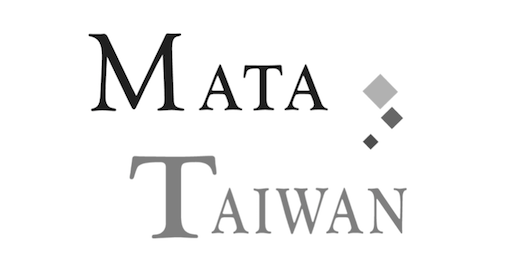很好 ㄋㄟ,加拿大的朋友, 泰雅族的小米,要到你們家了! Dear friends in Canada, good for you! Cuz Tayal millet is coming to your town! 還記得我們之前分享過的《好久不見德拉奇》嗎? 這部由泰雅族導演 Sayung Simung 費時一年拍攝的部落紀錄片,日前獲加拿大原住民影展(Biindigaate Indigenous Film Festival)選為閉幕影片,將在 9/29(日)晚上 7 點在加拿大安大略省 Thunder Bay 的 Paramount Theatre(地址:24 Court Street South, Thunder Bay, ON, Canada)演出,要讓泰雅族朋友的部落生活,紅到國外去啦!
導演 Sayung Simung 是一位在都市生活八年,不會說泰雅語的泰雅族女孩。有一天,她突然拋下一切,回到從小長大的環山部落(Sqoyaw),開始想不顧一切地記錄自己部落的一切: 德拉奇(trakis),就是泰雅語的「小米」的意思,對於以前的泰雅族人來說,是最神聖,也是最重要的作物之一。 環山部落(Sqoyaw),是泰雅族朋友的聚落之一,是中橫宜蘭支線上最大的泰雅族部落;美麗知名的武陵農場,就在這裡。日本人來到這裡時,曾把這裡叫做「快樂小街」。 在環山部落,有老婆對老公的關心: 「(老公)少吃檳榔,多吃馬告!」 在環山部落,有爸爸對小孩的愛: 「他從小幾乎都是跟我在一起,等於我的伴啦!搞不好他去台中上課了,搞不好我一個人喝兩三杯了,我要掉眼淚打電話給他了……」 在環山部落,有德拉奇,還有 yaki(老婆婆)對過去「快樂小街」上生活的思念: 「…… 在以前我們的時代,我們所想的就是栽種小米,其他的我們什麼也不想,不管是有錢還是沒錢,在生活上就不會有太多的憂慮。」 「以前大家都非常的勤勞工作,我們都是跟著父母親一起工作。那時候沒上學讀書,也沒有人來教我們讀書,所以都是從小跟著父母學習生活技能。 很懷念過去的生活方式,看到小米彷彿回到過去的生活……. 在以前的時代很好喔,部落的族人都非常的團結,也時常一起用餐。 很高興看到這些小米田,看起來真的很好!」 好久不見,德拉奇! 本文相關連結
圖片來源:Thomas_Yung(CC Licensed)Remember the movie that we shared with you guys, Millet Back Home? The documentary that the Taiwanese indigenous director Sayung Simung (Tayal) shotted for one year is selected by Canadian Biindigaate Indigenous Film Festival as the closing film in the coming film festival, and will be played in Paramount Theatre, Thunder Bay (24 Court Street South, Thunder Bay, ON, Canada) at 7pm on Sep 29 (Sun). Now even our Canadian friends can see the charm of Taiwanese indigenous cultures!
The director Sayung Simung is a Tayal girl who had lived in cities for eight years, speaking no Tayal. One day, she suddenly decided to go back to Sqoyaw, the community she grew up, and tried to record everything that was happening…… ‘trakis’ is “millet” in Tayal. For Tayal people, millet used to be the most sacred and too the most important crops in the past. Sqoyaw, a Tayal indigenous community and the largest one along the Yilan branch of the beautiful and high Central Cross-Island Highway in Taiwan, where the astonishing popular tourist attraction Wuling Farm is located nearby. When the Japanese people came here, they called Sqoyaw “the Happy Little Street”. In Sqoyaw, we see the tender solicitude of a Tayal wife to her husband: “(Honey,) quit those betel nuts and switch to pepper!” In Sqoyaw, we see the deep love of a Tayal father to his son: “He’s alsmost always been right by me, like my partner this whole time. Maybe he will be busy with school in Taichung City. Maybe I will be lonely and start drinking by myself, and call him while crying……” In Sqoyaw, with trakis the millet, there are endless missing of yaki (grandma) to the happy life in the Happy Little Street in the past: “Back in our days, all that was on our minds was planting millet. We didn’t think about anything else, whether rich or poor. There was not much worry in our daily lives. We used to all work hard. I worked alongside my parents. We didn’t go to school. No one came to teach us either, and so we learned life skills from our parents. I miss the old lifestyle. When I see millet, it’s like returning to the old days…… People were very close-knit back in the day…… We often shared meals together. I’m happy to see how the millet is doing. Everything looks great!” Long time no see, our dear millet back home! Related Post
Photo via Thomas_Yung(CC Licensed)]]>
